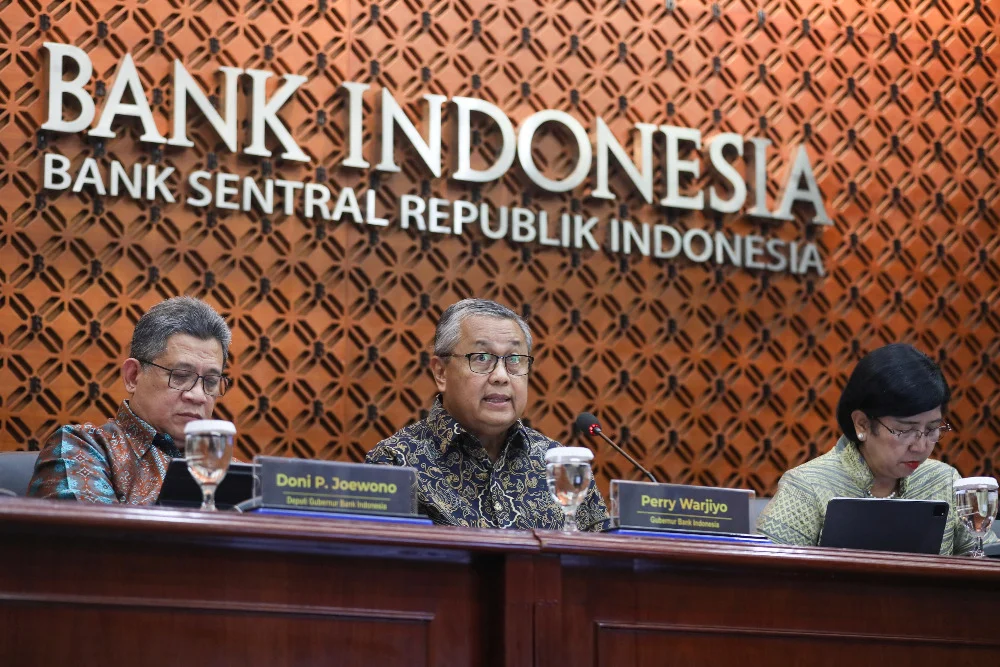Bank Indonesia Reduces Interest Rate Amid Economic Stagnation
In a move to stimulate Indonesia’s economy, Bank Indonesia (BI) has decided to lower its benchmark interest rate by 25 basis points, bringing it to 5.75%. This decision, announced during the Rapat Dewan Gubernur (RDG) on January 14-15, 2025, signals growing concerns about the current state of the nation’s economy, which has shown signs of stagnation.
Economic Indicators Highlight the Strain
Several key indicators suggest that Indonesia’s economy is facing challenges. The country’s core inflation rate, which stood at 0.17% month-to-month (mtm) in December 2024, remains relatively low. Retail sales, another key measure of economic health, have shown a sharp slowdown. The growth rate for retail sales in Q4 2024 was only 1.1% year-on-year (YoY), significantly lower than the 5% YoY growth seen in the previous quarter.
Further, the Indeks Ekspektasi Penjualan (IEP) for February and March 2025 is expected to drop, with projections of 127.7 and 136.6, compared to previous values of 144.7 and 146.5. These figures suggest that consumer confidence is weakening, which may hamper economic recovery.
Experts Weigh In on the Rate Cut
Despite the rate cut, some economists argue that such a measure alone is insufficient to boost Indonesia's economic growth. According to David Sumual, Chief Economist at BCA, the key to sustained growth lies in increasing investment. He points out that investment can drive job creation, which in turn enhances purchasing power and boosts the economy.
Sumual also believes that the effectiveness of monetary policy is limited compared to fiscal policies. He suggests that more comprehensive economic measures, including fiscal stimulus, are needed to revive growth and improve the economic outlook.
Kurniawati Yuli Ashari, Economist at Bank Syariah Indonesia (BSI), shares a similar view, emphasizing that the rate cut is aimed at providing additional support to the economy. She mentions that BI has revised its growth forecast for 2025 downward, from a midpoint of 5.2% to 5.1%, reflecting the country's economic challenges. However, she also acknowledges that the central bank remains confident in its ability to manage inflation, with a target range of 2.5% ± 1% over the next two years.
The Road Ahead for Indonesia’s Economy
The rate cut, while a step in the right direction, is expected to have a delayed effect on the economy. Experts agree that the transmission of the lower BI rate into lower lending rates will take time. Nonetheless, Ashari hopes that the rate cut will encourage banks to increase credit disbursement, especially in the first quarter of 2025. With the upcoming Ramadan holiday at the end of Q1 2025, there may be a surge in consumer loans, which could further support economic activity.
Conclusion
Bank Indonesia's decision to lower interest rates underscores the growing concern over the country’s economic performance. While the rate cut aims to alleviate some pressure, economists warn that a more holistic approach—encompassing both monetary and fiscal policies—is needed to drive sustainable economic growth. The government’s focus on boosting investment and job creation will be critical in overcoming the challenges ahead.
Read More






 Saturday, 31-01-26
Saturday, 31-01-26







